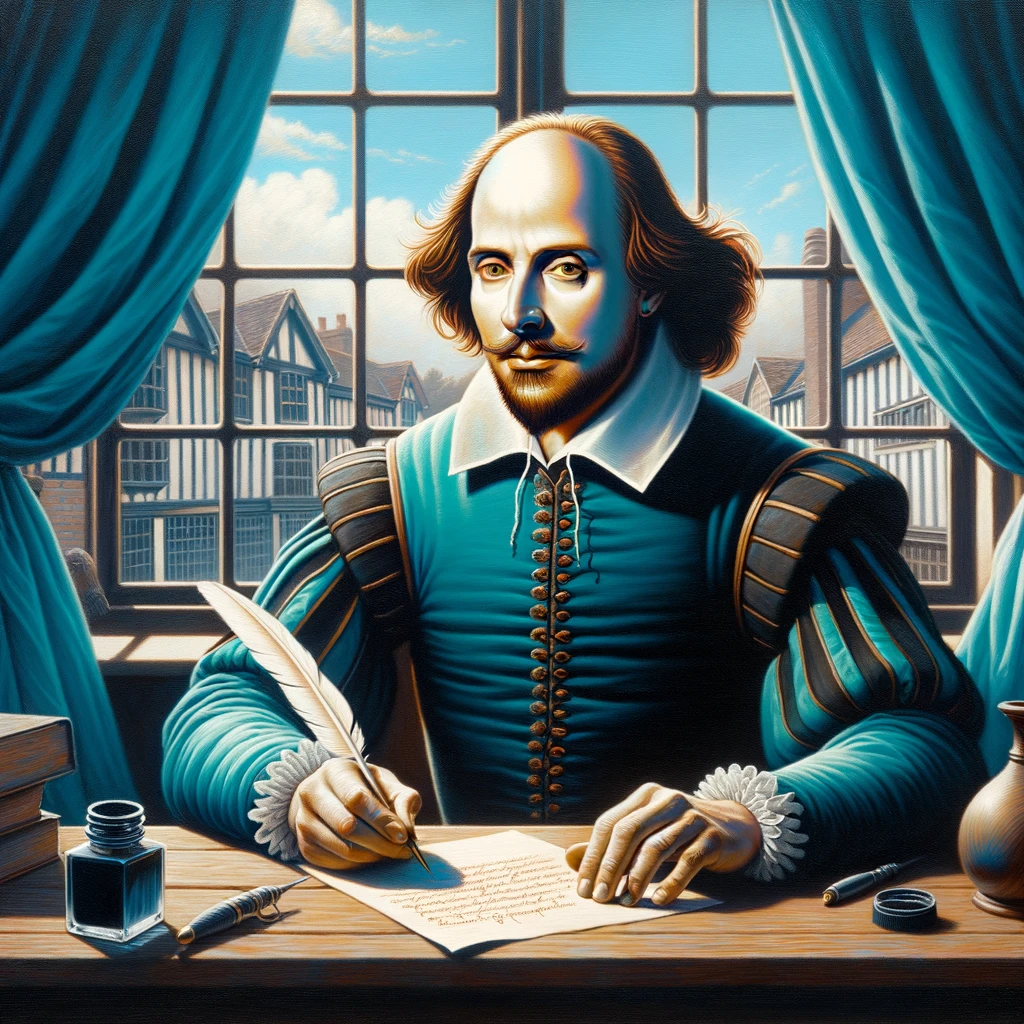
William Shakespeare, an icon of literature and drama, has been a subject of fascination for more than four centuries. Though much about his life is shrouded in mystery, his impact on the English language and storytelling remains unparalleled. This blog aims to delve into various aspects of Shakespeare’s life, works, and legacy.
Who Was William Shakespeare?
Born in April 1564 in Stratford-upon-Avon, William Shakespeare was an English playwright, poet, and actor. He is widely considered one of the greatest writers in the English language and world literature. Though much of his life is subject to scholarly debate, records indicate that he was a prolific writer who changed the course of literary history.
William Shakespeare’s Early Life
William Shakespeare was born to John Shakespeare, a glove-maker and local politician, and Mary Arden, the daughter of a wealthy farmer. He was the third of eight children and likely attended the King’s New School in Stratford, where he would have studied Latin and classic works. Despite the scant details, it is clear that his upbringing in a thriving market town provided a rich foundation for his future works.
William Shakespeare’s Place of Birth
Shakespeare was born in Stratford-upon-Avon, a market town situated in the county of Warwickshire, England. The town has since become a pilgrimage site for literature enthusiasts, boasting several tourist attractions like the Royal Shakespeare Theatre and Shakespeare’s Birthplace, a carefully preserved house that offers insights into his early years.
William Shakespeare’s Wife
At 18, Shakespeare married Anne Hathaway, who was eight years his senior. The couple had three children: Susanna, and twins Hamnet and Judith. Though the details of their marriage remain a subject of scholarly debate, Hathaway is often cited as an inspiration in Shakespeare’s works. She outlived her husband by seven years, and little is known about her life after his death.
Plays by William Shakespeare
Shakespeare’s oeuvre includes 39 plays, 154 sonnets, and two long narrative poems. His plays have been divided into three main categories: tragedies like “Hamlet” and “Othello,” comedies such as “As You Like It” and “Twelfth Night,” and histories like “Henry IV” and “Richard III.” His work has been performed more frequently than that of any other playwright, testifying to its enduring relevance.
Most Famous Plays by Shakespeare
Among Shakespeare’s most famous plays are “Romeo and Juliet,” a tragic love story; “Macbeth,” a dark tale of ambition and hubris; and “Hamlet,” a complex drama of revenge and existential questioning. These works have transcended time and culture, appealing to audiences worldwide and inspiring countless adaptations across various media.
William Shakespeare Conclusion
Just as Stratford-upon-Avon treasures Shakespeare, we in Wirral share a deep appreciation for culture and community. Shakespeare’s timeless tales remind us of values that bring communities together, transcending geography. His works resonate here, capturing the universal essence that can also be found in the rich heritage of Wirral, uniting and inspiring us across generations.

William Shakespeare: The Bard of Avon’s Timeless Legacy
- A Gifted Playwright from an Early Age: By the age of 29, Shakespeare had already written some of his iconic plays. His early works like “Romeo and Juliet” showcased his innate talent and set the stage for a remarkable career.
- Bridging Tragedy and Comedy: Shakespeare had a unique ability to traverse between deep tragedies like “Hamlet” and light-hearted comedies such as “A Midsummer Night’s Dream,” showcasing the vast range of his literary genius.
- Introducing Words to the English Language: The Bard introduced approximately 1,700 words to the English language. Terms like “assassination,” “bedroom,” and “uncomfortable” were first penned by him, enriching our lexicon.
- Chronicles of English Kings: Through his historical plays, Shakespeare painted vivid portraits of English monarchs, blending fact with creative liberty, providing both entertainment and education about the country’s regal past.
- Sonnets that Transcended Time: Beyond his plays, Shakespeare’s 154 sonnets delved into themes of love, beauty, and morality. These poems continue to resonate with readers across generations, affirming his poetic prowess.
The Team at karlsideas.com / everyonescommunityopinions.com


Leave a Reply